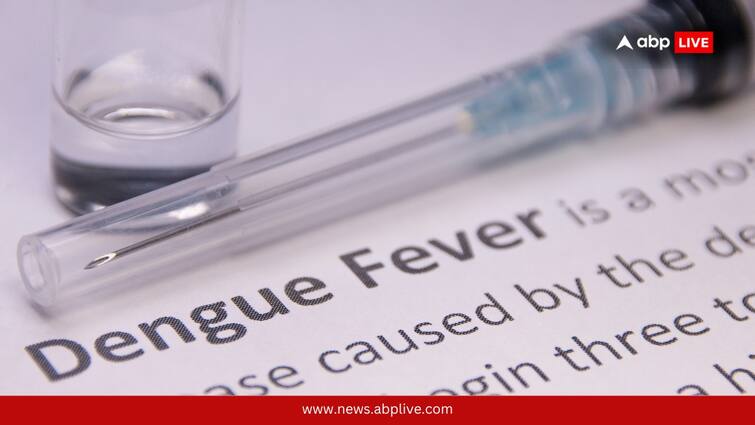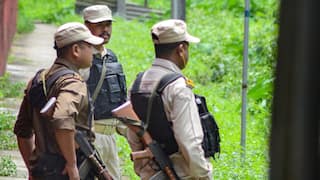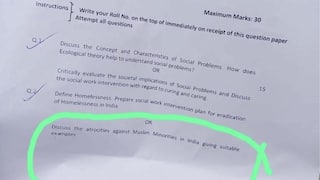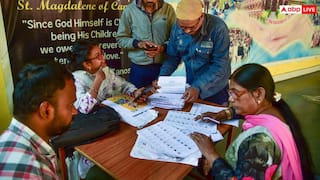UK Announces Dengue Vaccine For Travellers, To Be Prescribed Only For Those With A Previous Infection
Some diseases that have spread over the last few decades are untreatable with medicines. Recovery banks heavily on immunity & clinical support. There is good news about a dengue vaccine for travellers

Dengue Vaccine: For those living in tropical countries such as India, most countries in Africa and South America, including Mexico, vector borne diseases (especially with mosquitoes as the vector/medium) are a regular nuisance. Half of the world's population is living in areas where dengue fever is present. Asian countries are most affected, reporting approximately 70% of approximately 390 million cases reported annually.
The live attenuated tetravalent dengue vaccine, Qdenga (Takeda), was licensed in the UK in 2023, but was not immediately approved for travellers as they would be out of the observation of the trial researchers. Now, the dengue vaccination is recommended before travel to an endemic country.
Lancet journal says that since Qdenga is a new vaccine, its rollout will be monitored by the UK Medicines and Healthcare Products Regulation Agency.
Some people with certain health conditions are more vulnerable. Although most infections are asymptomatic or mild, they progress to severe dengue fever and death occurs.
What is worse that despite a lot of research, no vaccine for dengue has been found to be safe for all.
The global march of the dengue virus has been made worse by climate change, and urbanisation has contributed to the spread of the vectors (Aedes mosquitoes), enabling sustained transmission in regions that were previously not affected — such as the UK, for example.
According to a report in the Lancet medical journal, researchers at the University of Oxford, Hospital for Tropical Diseases, University College London Hospitals, and King’s College Hospital, among others, have collaborated and worked on a vaccine that for this disease.
Although the burden of the disease is largely confined to Asia and central or South America, autochthonous spread (originating in the geographical area where the patient lives; locally acquired) has been increasing in central and southern Europe.
Why This Dengue Vaccine Is Important
Since no specific treatments exist for dengue virus infection at present, prevention is paramount. That is where the vaccine comes into play.
Patients with compromised immunity are likely to face complications. In some patients, the T-cell responses drive disease enhancement mediated by a hyper-inflammatory response, causing downstream vascular leakage, bleeding, and organ impairment. Researchers say that on subsequent infection, the threat of complications and disease enhancement is increased.
At present, there are two live attenuated tetravalent vaccines (containing live pathogens from a bacteria or an 'attenuated' or weakened virus) targeting DENV1-4 (commercial names: Dengvaxia and Qdenga).
Dengvaxia showed 60% efficacy. It is now limited to individuals with previous dengue fever, and it is not available in non-endemic countries.
In 2023, the Qdenga vaccine for dengue had been approved by the European Medicines Agency (EMA) for individuals more than 4 years of age, and for use according to national recommendations. Owing to its live attenuated nature, the vaccine is contraindicated in those who are pregnant, breastfeeding, or immunocompromised.
Qdenga is to be administered as a subcutaneous injection, two doses with three months' interval. It cannot be given to immunocompromised individuals as well as in pregnant and breastfeeding women.
So, What Is New In The New Dengue Vaccine?
According to Lancet, Qdenga was primarily developed for individuals living in endemic settings (such as tropical countries with prevalence of dengue), regardless of their dengue infection history.
Dengue is not endemic in the UK. In 2023, only 634 confirmed and probable dengue cases were reported in England, Wales, and Northern Ireland. Compare that with India's 2,89,235 cases in 2023 and 1,86,567 cases reported till October 2024.
Now the vaccine has been approved for travellers, especially those going to endemic countries, and only in case they have been previously infected. Repeat infections enhance the possibility of life-threatening complications.
Clinicians have been advised to counsel the affected individuals regarding the risk of secondary or severe dengue infection. The vaccine is to be available also on private prescription but the patients need to present early before travel to ensure sufficient time for serological testing (wherever necessary) and for the administration of two doses of Qdenga over three months.
Researchers also highlight the fact that dengue vaccination does not negate the need for avoiding insect bites. All suspected adverse reactions need to be reported via the Yellow Card scheme and directly to the manufacturer, Takeda.
The author is a senior independent journalist.
Check out below Health Tools-
Calculate Your Body Mass Index ( BMI )






































